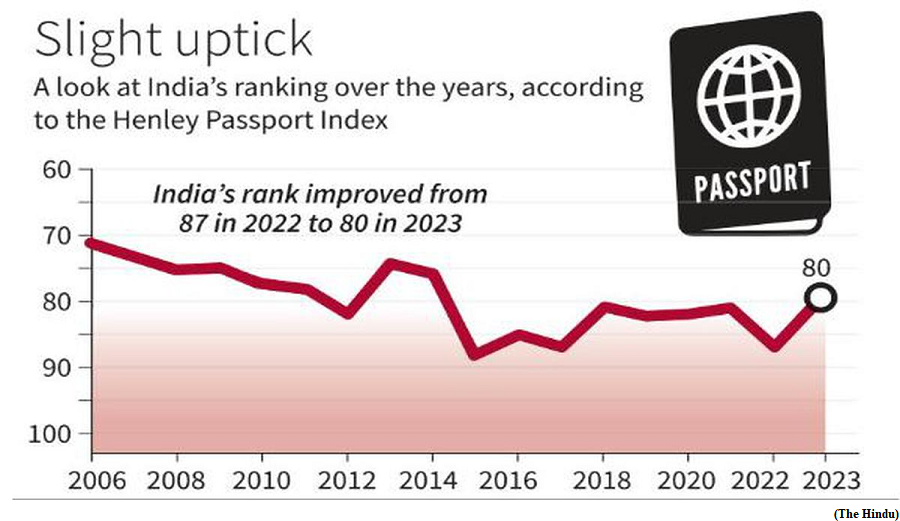First evidence of two planets sharing same orbit found (GS Paper 3, Science and Technology)

Why in news?
- Astronomers have discovered the first evidence of two planets sharing the same orbit around a star and they are likely the size of Jupiter.
Details:
- Using Chile's Atacama Large Millimeter/submillimeter Array (ALMA), they detected a cloud of debris that could be the building blocks of a new planet or remnants of one that has already formed.
- If confirmed, this would be the strongest evidence yet of the existence of co-orbital or Trojan planets.
- The cloud of debris is in the same orbit as an already confirmed planet circling the star, 370 light-years away in the constellation Centaurus.
Trojan planets:
- The concept of Trojan planets was theorised two decades ago, suggesting that pairs of similar mass planets may share the same orbit around their star.
- Trojans, rocky bodies sharing an orbit with a planet, are common in our Solar System, with over 12,000 rocky bodies accompanying Jupiter on its orbital journey around the sun.
- Astronomers have long speculated that Trojans, particularly Trojan planets, could exist around other stars, but evidence has been elusive.
Key findings:
- The international team of scientists used ALMA to find the strongest observational evidence yet of Trojan planets in the PDS 70 system.
- This young star hosts two giant, Jupiter-like planets, PDS 70b and PDS 70c. The team spotted a cloud of debris at the location in PDS 70b’s orbit where Trojans are expected to exist.
- The confirmed planet with the suspected tagalong takes 119 years to complete a lap. Another gas giant is known to circle this star.
- Trojans occupy the so-called Lagrangian zones, regions in a planet's orbit where the combined gravitational pull of the star and the planet can trap material.
What’s next?
- To fully confirm their findings, they will have to wait until 2026 when they will be able to focus ALMA towards this unique system to see if both PDS 70b and its sibling cloud of debris move significantly along their orbit together around the star.
Union Cabinet gives nod to Press and Registration of Periodicals Bill
(GS Paper 2, Governance)
Why in news?
- The Union Cabinet approved the Press and Registration of Periodicals Bill that seeks to do away with the provision for prosecution and imprisonment of publishers and simplify the registration process for periodicals.

Key Highlights:
- It will replace the Press and Registration of Books (PRB) Act, 1867 that governs the registration of print and publishing industry in the country.
- It seeks to provide a simple online system for registration of periodicals with the Registrar of Newspapers for India.
- The Bill also seeks to do away with two provisions that required the publishers and printers to file a declaration before the district magistrate.
- It also seeks to do away with the penal provisions of the PRB Act which made improper declaration of information a punishable offence with a prison term of up to six months.
- The new Bill also provides for an appellate authority.
How it make the current system simple?
- Currently, a person wanting to start a newspaper has to submit an application with the district collector, who sends it to the Registrar of Newspapers in India (RNI) to check for title availability.
- The registration process moves forward only after the RNI conveys the availability of the title to the collector, who then administers the oath to the person keen on starting the newspaper as per provisions of the PRB Act.
- The new Bill also seeks to move this process of checking title availability online, thereby reducing the time required for registration of newspapers and periodicals significantly.
India climbs seven points to 80 on Passport Index, Singapore at top position
(GS Paper 3, Economy)
Why in news?
- India has climbed seven places on the Henley Passport Index, 2023 to the 80th rank from 87 in 2022 though the number of countries allowed visa-free access to Indian passport holders remains unchanged.

About Henley Passport Index:
- The Henley Passport Index is the ranking of all the world’s passports according to the number of destinations their holders can access without a prior visa.
- The index includes 199 passports and 227 travel destinations.
- The index is brought out by Henley and Partners.
India’s ranking:
- In 2014, India ranked 76 with 52 countries allowing Indian passport holders visa-free access, but its performance has not been linear.
- It ranked 88 in 2015 (visa-free access to 51 countries), 85 in 2016, 87 in 2017, 81 in 2018, 82 in 2019 and 2020, and 81 in 2021.
Top rankers:
- Japan, which occupied the top position on the Henley Passport Index for five years, dropped to the third place.
- It was replaced by Singapore, which is now officially the most powerful passport in the world, with its citizens able to visit 192 travel destinations out of 227 around the world visa-free.
- Germany, Italy, and Spain occupied the second place. Alongside Japan at the third position are Austria, Finland, France, Luxembourg, South Korea, and Sweden.
- The U.K. climbed two places to occupy the fourth place, while the U.S. continued its decade-long slide down the index, dropping two places to the eighth spot.
- Both the U.K. and the U.S. jointly held the first place on the index nearly 10 years ago in 2014.
Visa-free access:
- Henley & Partners also conducted an exclusive new research resulting in the Henley Openness Index which measures how many nations does a country allow visa-free access to.
- India was ranked 94 out of a total of 97 ranks for allowing only four countries visa-free access.
- At the bottom of the Index were four countries for scoring zero for not permitting visa-free access for any passport, namely, Afghanistan, North Korea, Papua New Guinea, and Turkmenistan.




